MercoPress. South Atlantic News Agency
Latin America
-
Saturday, August 1st 2020 - 06:11 UTC
Ecuador extends deadline for negotiations with bondholders

Ecuador will extend the deadline for creditors to vote on its US$ 17.4 billion debt restructuring plan to Monday following a lawsuit by a small group of bondholders, the finance ministry said on Thursday.
-
Saturday, August 1st 2020 - 06:07 UTC
Colombia planning private sector workers to tap pension savings
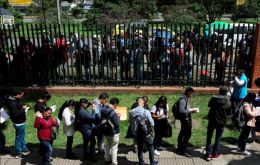
Colombia is the latest Latin American country considering a plan to let workers tap private pension savings, a move intended to soften the slump in consumer spending but which risks worsening some of the world’s deepest stock market slumps.
-
Saturday, August 1st 2020 - 06:05 UTC
Mexican economy needs two years to reach pre-pandemic levels
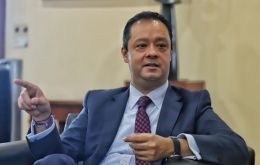
A full recovery of the Mexican economy to pre-pandemic levels could be reached in one to two years so long as no new coronavirus outbreaks strike, a senior official said
-
Friday, July 31st 2020 - 10:30 UTC
Latin America should focus on digital technologies, recommends IADB

Latin American should turn its infrastructure investment focus toward digital technologies and away from physical infrastructure to stimulate its economic recovery after the coronavirus pandemic, the Inter-American Development Bank (IADB) said on Thursday.
-
Friday, July 31st 2020 - 10:04 UTC
London based Cuban government bank blacklisted by US administration
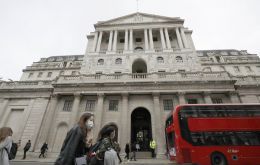
The United States announced sanctions on Thursday against Havin Bank LTD, a London-based Cuban entity also known as Havana International Bank, dealing a blow to the Cuban financial system.
-
Thursday, July 30th 2020 - 09:40 UTC
US ambassador warns of “consequences” if Brazil chooses China's Huawei 5G network

The US ambassador in Brasilia warned of “consequences” if Brazil chooses Chinese telecoms company Huawei to develop its 5G network, in an interview published Wednesday.
-
Thursday, July 30th 2020 - 09:05 UTC
Ecuador fishery resources threatened by a fleet of 260 Chinese vessels

Ecuador is on alert due to the appearance of a huge fleet of mostly Chinese-flagged fishing vessels off its Galapagos Islands. Patrols are trying to ensure the fleet - which is made up of around 260 vessels - does not enter the delicate eco-system from international waters.
-
Tuesday, July 28th 2020 - 08:35 UTC
With virus confinement in Peru domestic violence has soared: 900 women missing or presumably killed

A staggering more than 900 girls and women are missing and feared dead in Peru since the COVID-19 confinement began, authorities said on Monday. Peru is home to 33 million people long has had a horrific domestic violence problem.
-
Monday, July 27th 2020 - 10:28 UTC
Latin America, the region most impacted with the coronavirus
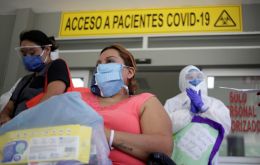
Coronavirus cases in Latin America for the first time have surpassed the combined infections in the United States and Canada, a tally showed on Sunday, amid a surge of infections in Brazil, Mexico, Peru, Colombia and Argentina.
-
Saturday, July 25th 2020 - 08:50 UTC
“Mobilizations” anticipated in Bolivia as election date was pushed back to October
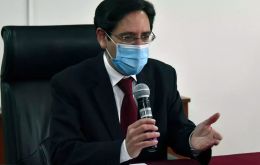
Bolivia's general election will be pushed back until October 18 as the coronavirus pandemic grips the South American nation, which is forecasted to fan tensions between the interim conservative government and the socialist party of former President Evo Morales.
